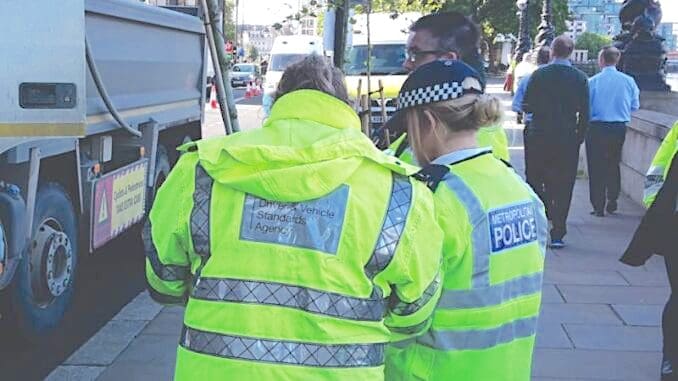DVSA strategic plan for fewer HGV tests for Earned Recognition fleets
Longer test intervals for the vehicles of ER operators in the DVSA Earned Recognition scheme are on the cards, according to the DVSA’s latest strategic plan.
The DVSA Strategic Plan to 2025, published today, sets out proposals to improve its services for its customers, including HGV operators, over the next two years.
The strategic plan states that by 2025 one of its key aims is to “review the evidence and opportunities with industry and DfT of changing the testing model for Earned Recognition (ER) vehicle operators.”
This follows on the DfT‘s Heavy Vehicle Testing Review, published in 2021, which recommended DVSA examine whether the frequency of testing should be changed for certain groups of vehicles, including ER operators.
Under the operator licensing rules, operators are required to conduct maintenance and inspections regularly – usually about every 6 weeks – to the standard of the annual test. DVSA will review whether this should take place at lengthier intervals for ER operators.

Image by Motor Transport
Other targets set out in DVSA’s Strategic Plan include improvements to vehicle testing, with a pledge to “work with ATFs to provide the best availability and choice of testing service for vehicle users, with the right numbers of staff, and right arrangements with ATFs, including the way [DVSA] schedule.”
Road side testing is also in its sights with plans to introduce mobile inspection equipment for remote compliance checks, by 2025, subject to trials, and to explore how under-vehicle inspection equipment could use artificial intelligence to make inspections faster and more efficient.
DVSA plans
DVSA also plans to improve the vehicle approval service – including doing more approvals at customers premises – and bring in new test methods for vehicle approvals monitored by the facility through recognised specialists.
The DVSA also wants to partner with more ATFs to increase competition and choice for customers, and plans to prioritise areas of the country with fewer ATFs, and increase choice for hazardous goods carriers.
Fraudulent MOT garages are also in its sights with a pledge to refine data analysis to target and prosecute non-compliant MOT garages.
At the same time it is aiming to introduce a recognition scheme for the ATFs and MOT garages that follow best practice.
Announcing the plan Loveday Ryder, DVSA chief executive, said: “The transformative plans in these documents demonstrate our drive for more efficient services. We will always keep looking for ways to build on this to support the government’s ambitions.”
Roads minister Richard Holden said: “DVSA are right to be working to tackle the driving test backlog, boost road safety, and make transport more sustainable and accessible. It’s important to see the next steps they have in place and I look forward to them delivering for people right across the country.”
The strategic plan also notes the need for the DVSA to “adapt to” the needs of self-driving vehicles and the development of electric and hydrogen-powered vehicles.
Hayley Pells, policy manager at the Institute of the Motor Industry (IMI), welcomed the move and called “sustained investment in the skills, particularly for the new automotive technologies including driver assistance systems and new drivetrains.
She added: “The IMI welcomes the opportunity to continue working with the DVSA to ensure skills training and qualifications are fit for purpose for sustainable, connected, and safe transport across the UK.”
Written by Carol Millet for Motor Transport © 4th April 2023.
For more help staying compliant, read about our DVSA Earned Recognition fleet and workshop software.
